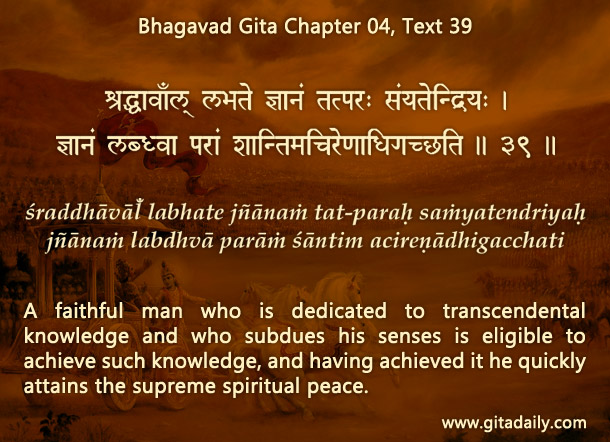Seeking requires believing: believing that something worth seeking exists and that we have the capacity to find it
Some people say, “Be a seeker, not a believer.” This differentiation rests on the notion that believers are sentimental and gullible, whereas seekers are intellectual and enterprising.
But is the distinction between the two that categorical? Is seeking possible without believing? Whenever we seek anything, we believe, at the very least, that something worth seeking exists and that we have the capacity to find it. Pertinently, the Bhagavad-gita (04.39) states that faith is the pre-condition for knowledge. In other words, believing precedes seeking.
Suppose we seek some buried treasure in the ruins of an ancient prosperous city. To begin the onerous task of digging, we need to first consider credible — that is, believe — the reports of buried treasures. We also need to believe that those treasures can be uncovered by the resources we have, be they physical strength, technical tools or archaeological skills. Absent either of those beliefs, we won’t even start digging.
This principle that believing precedes seeking applies even to science. All scientific research is founded in two notions that are considered axiomatic, that is, believed without questioning. First, the universe works according to laws. Second, those laws are comprehensible to our human minds.
‘Believing precedes seeking’ applies to our spiritual quest too. Therein, we seek either deeper meaning and purpose in the world or deeper peace and bliss within our heart. In both cases, we need the twin beliefs that such purpose or bliss do exist and that they are not so far-off as to forever elude us.
Undoubtedly, believing blindly can be dangerous, but so can be blindly belittling all believing. To succeed in our quest for understanding, we need both a seeker’s inquisitiveness about the nature of reality and a believer’s humbleness about the intelligibility of reality.
Think it over:
- Why does believing precede seeking?
- How does science rest on belief?
- In our quest for understanding, what two things do we need?
***
04.39 A faithful man who is dedicated to transcendental knowledge and who subdues his senses is eligible to achieve such knowledge, and having achieved it he quickly attains the supreme spiritual peace.
To know more about this verse, please click on the image
Explanation of article:
https://www.youtube.com/watch?v=tMxK_DoC8LQ&feature=youtu.be
Podcast:


Seek the TRUTH,set the TIDE
I always feel the same when I listen to Jaggi Vasudev
Interesting; he often makes a radical difference between seeking and believing. That differentiation doesn’t stand logical scrutiny, as this article explains.